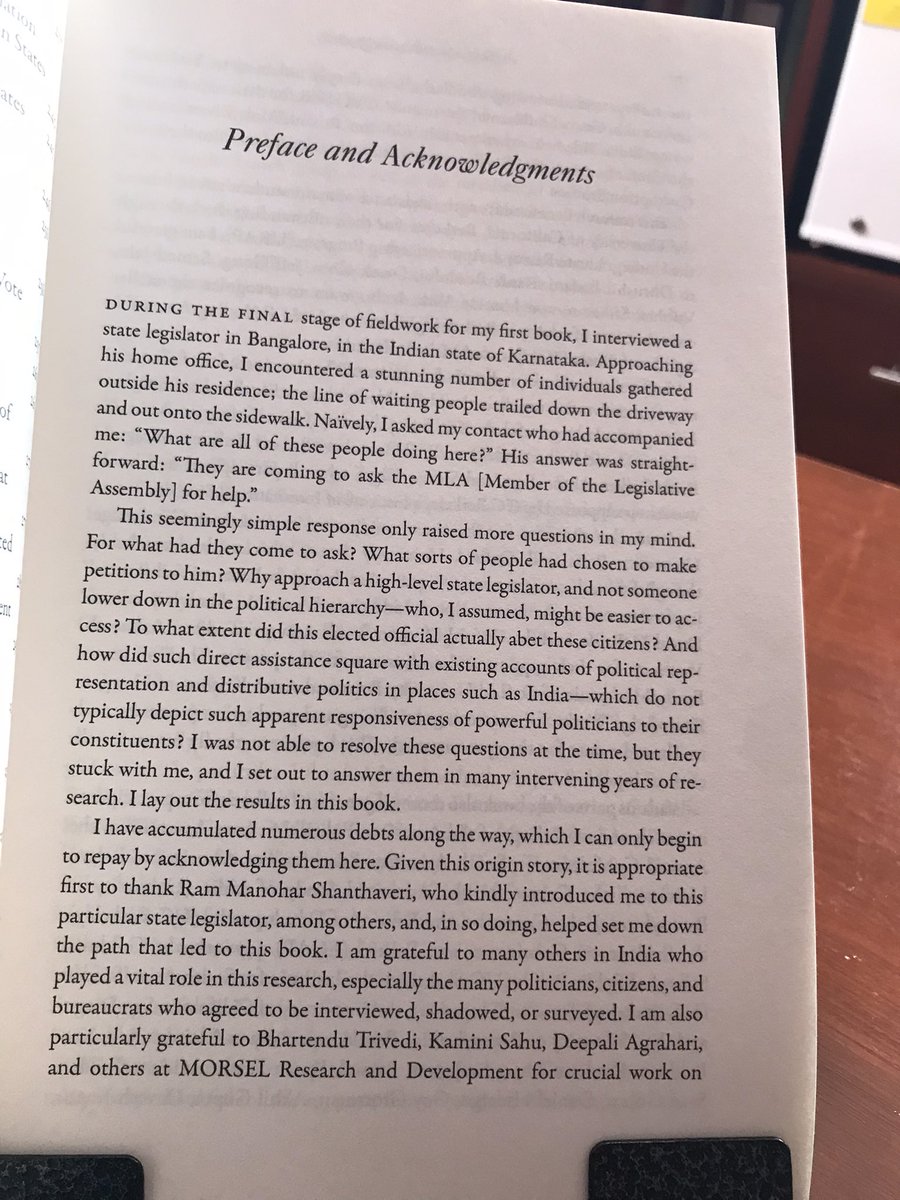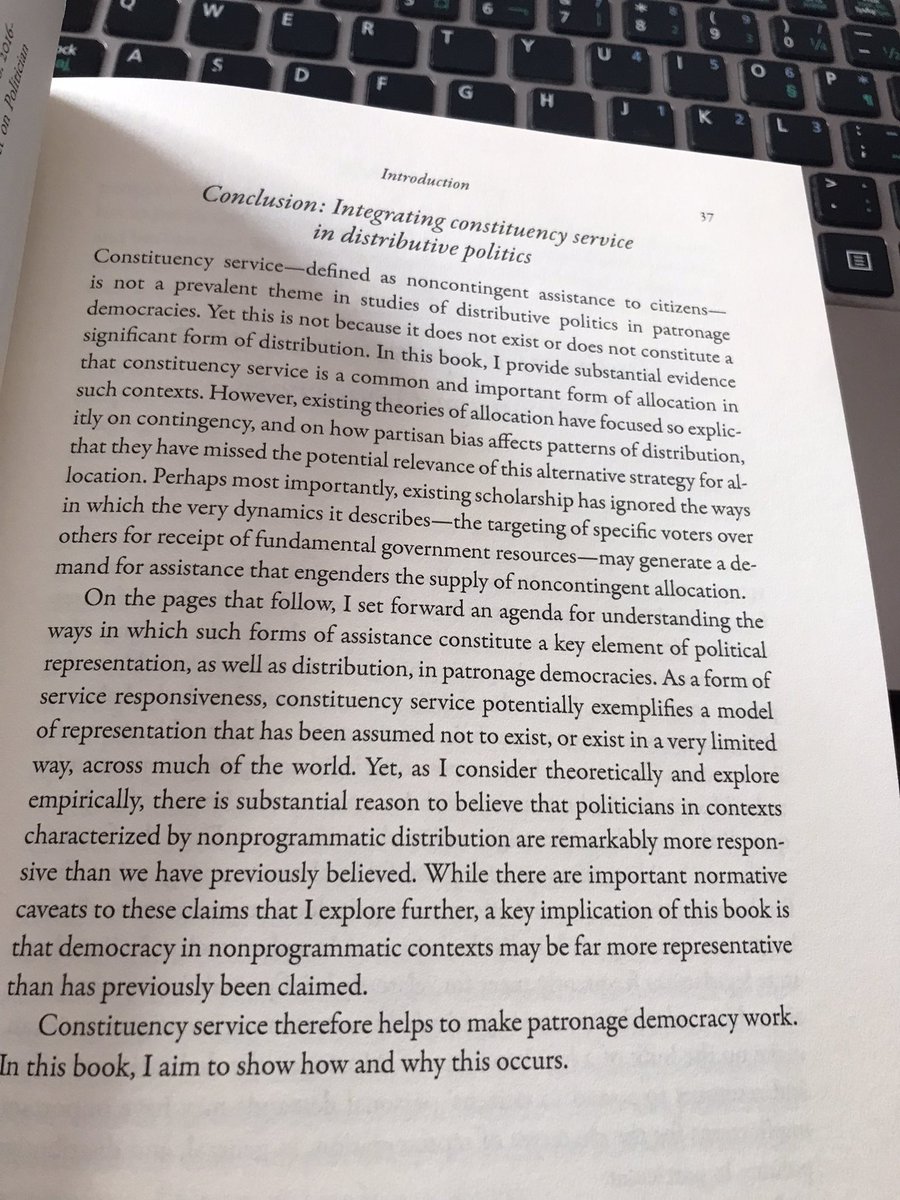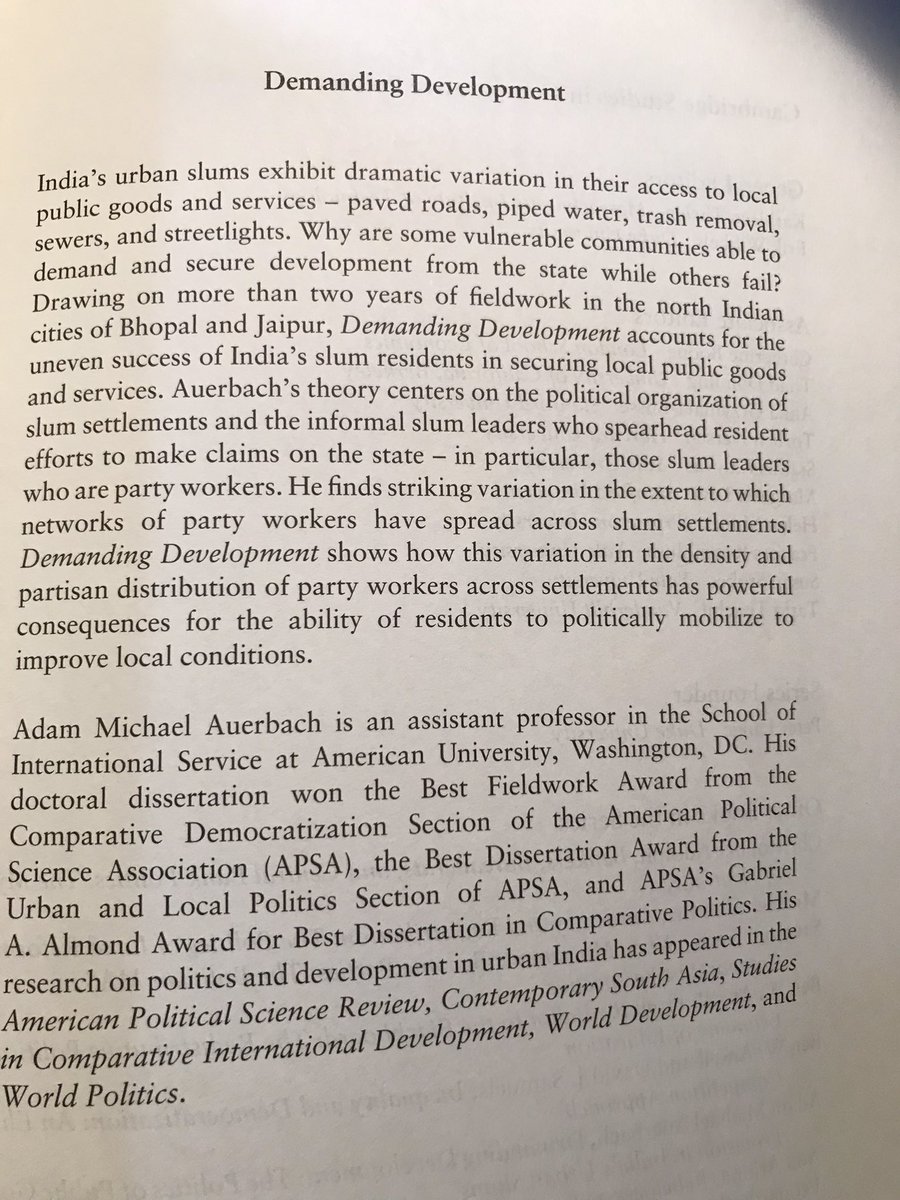
#RPVBooks I love @jenniferbussell ‘s work. We are both fellow @EGAPTweets members and share many methodological interests including field experiments and shadowing. I had read her second book (this one) but I wanted to wait until I had my own physical copy to write about it. 

This isn’t Jennifer’s first book (I also have that one and I’ll tweet about it in a few minutes). I love how repeatedly, throughout the book, Dr. Bussell explains what the puzzle is and what her core research questions were. This was important as I don’t work in this area. 

For those of us who don’t work in this field, providing schematics and definitions is key. The core or Bussell’s question focuses on why and how constituency service makes patronage democracy work. Her theoretical and empirical chapters lay out her argument quite clearly. 

So grateful to @jenniferbussell for providing such a succinct summary of her argument. This explanation allowed me to follow the entire book (which has it all, methods wise: surveys, shadowing, field experiments!)
10/10 recommend.
10/10 recommend.

• • •
Missing some Tweet in this thread? You can try to
force a refresh





